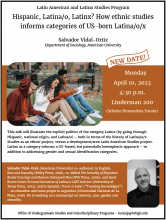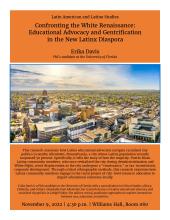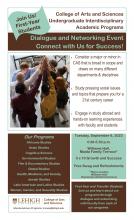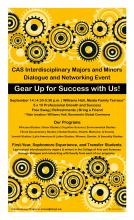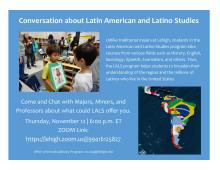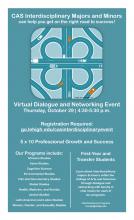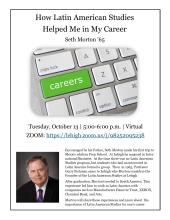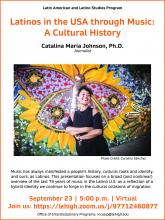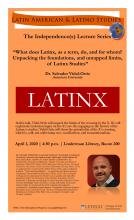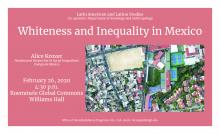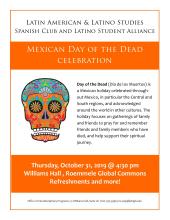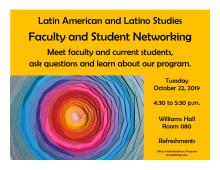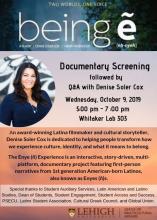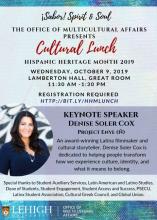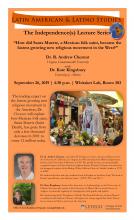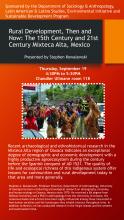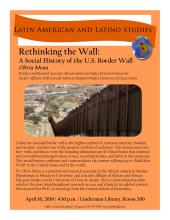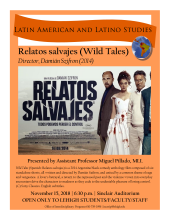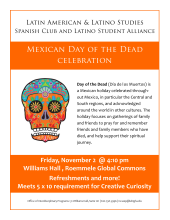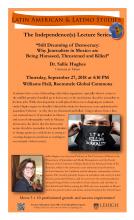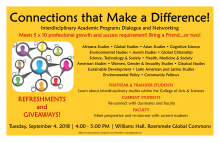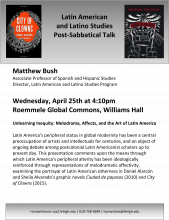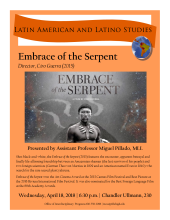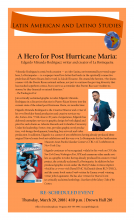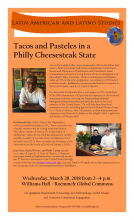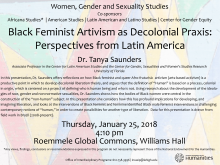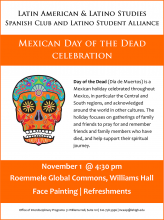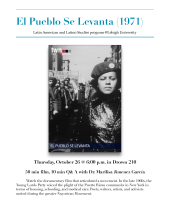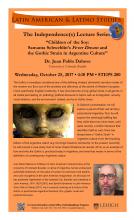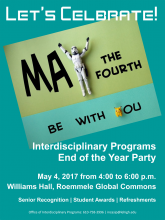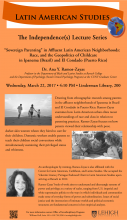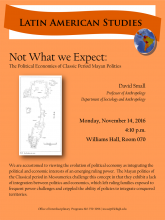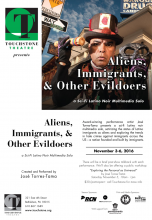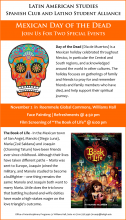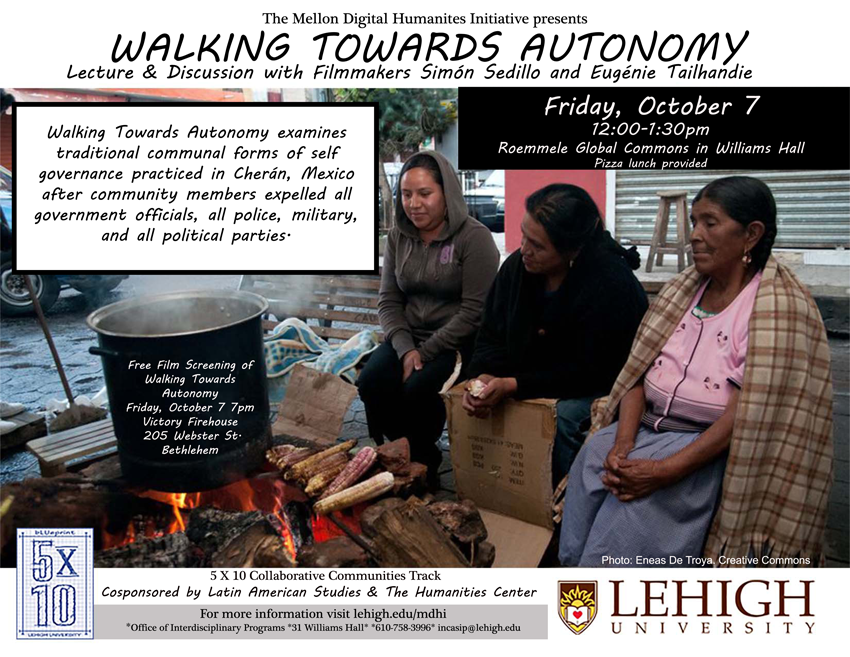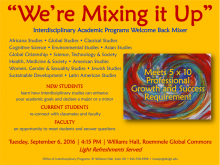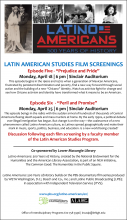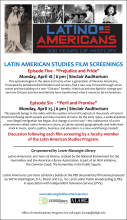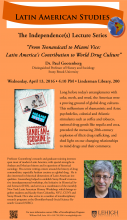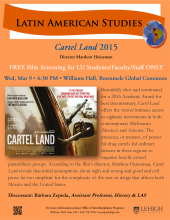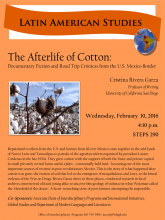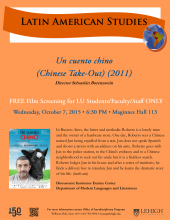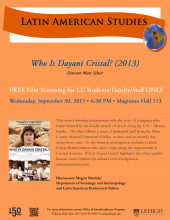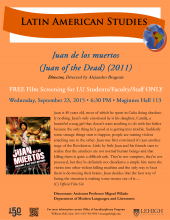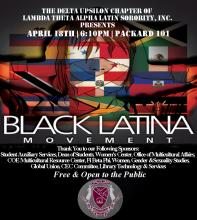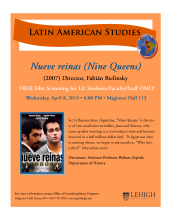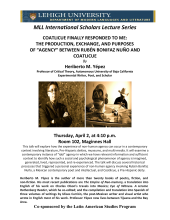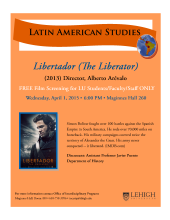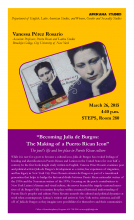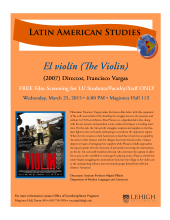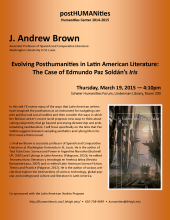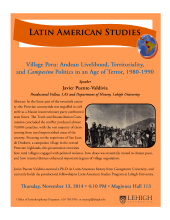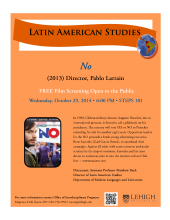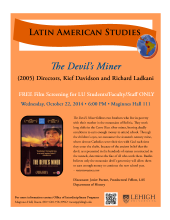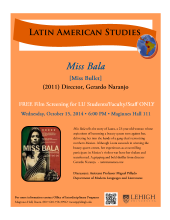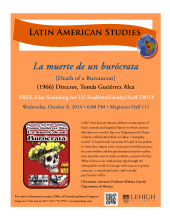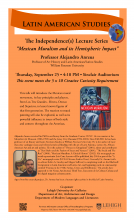Events Archive
Dialogue and Networking Event
Connect with Us for Success!
*Consider a major or minor in CAS that is broad in scope and draws on many different departments & disciplines
* Study pressing social issues and topics that prepare you for a 21st century career
* Engage in study abroad and hands-on learning experiences with faculty and students
Our Programs
Africana Studies
Asian Studies
Cognitive Science
Environmental Studies
Film & Documentary Studies
Global Studies
Health, Medicine, and Society
Jewish Studies
Latin American and Latino Studies
Women, Gender, and Sexuality Studies
5 x 10 Growth and Success
Free Swag and Refreshments
First-Year and Transfer Students
Join us and learn about our programs through dialogue and networking with faculty from each of our programs.
For more information contact Interdisciplinary Programs
5 x 10 CAS Interdisciplinary Majors and Minors Dialogue/Networking VIRTUAL Event
CAS Interdisciplinary Majors and Minors can help you get on the right road to success!
Registration Required:
5 x 10 Professional Growth and Success
First-Year and Transfer Students
Learn about interdisciplinary majors & minors within the College of Arts and Sciences through dialogue and networking with faculty in chat rooms for each of our programs.
Our Programs include:
Africana Studies
Asian Studies
Cognitive Science
Environmental Studies
Film and Documentary Studies
Global Studies
Health, Medicine, and Society
Jewish Studies
Latin American and Latino Studies
Women, Gender, and Sexuality Studies
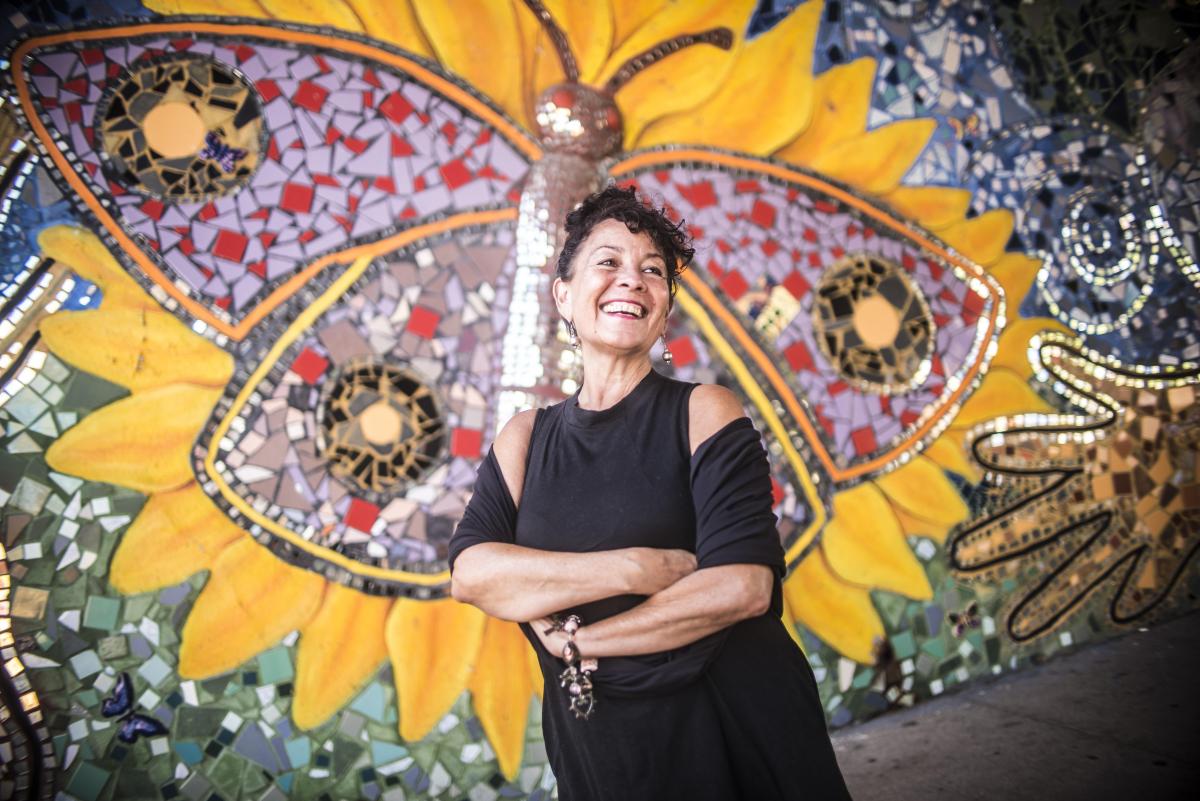 Catalina Maria Johnson, Ph.D. is a Chicago-based journalist. She hosts and produces her own radio show, Beat Latino,
Catalina Maria Johnson, Ph.D. is a Chicago-based journalist. She hosts and produces her own radio show, Beat Latino,
Latin American and Latino Studies
Faculty and Student Networking
Meet faculty and current students, ask questions and learn about our program.
Refreshments.
The Independence(s) Lecture Series
Still Dreaming of Democracy:Why Journalists in Mexico are Being Harassed, Threatened and Killed
Dr. Sallie Hughes
University of Miami
Academics have a way of discarding value-laden arguments, especially when it comes to the unfilled promises bundled up in democracy or the motivations that drive journalists to do their jobs. While that skepticism is well-placed when one is designing an academic study, Hughes argues we shouldn’t discard the desire for democracy as an explanation for journalists’ behavior - or why they are threatened and killed. Using evidence from a first-ever national survey of journalists in Mexico, and years of ethnographic work in Mexican newsrooms, she shows that the democratic norms that drive journalists to be muckrakers or change agents are a risk factor as strong as covering dangerous newsbeats or working in an extremely violent context.
Sallie Hughes is an Associate Professor at The University of Miami in the Department of Journalism and Media Management, and the Faculty Director of the University of Miami Institute for Advanced Study of the Americas, which is the university’s cross-university research institute on Latin America, the Caribbean and the diasporic communities of those regions. Her research primarily focuses on journalism and society in Latin America, particularly Mexico, and in recent years the enormous physical and psychological risk to journalists in Latin America and elsewhere in the Global South. Before earning her PhD, she was a journalist in Mexico and in the general market and Latino-oriented media of the United States
Interdisciplinary Programs celebrate Seniors achievements and recognition.
We are accustomed to viewing the evolution of political economy as integrating the political and economic interests of an emerging ruling power. The Mayan polities of the Classical period in Mesoamerica challenge this concept in that they exhibit a lack of integration between politics and economics, which left ruling families exposed to frequent power challenges and crippled the ability of policies to integrate conquered territories.
Co-sponsored with Office of Multicultural Affairs.
4:15pm to 5:30pm
Interdisciplinary Academic Programs Welcome Back Mixer
Meets 5 x 10 Professional Growth and Success Requirement
Academic Programs
Africana Studies • Global Studies • Classical Studies Cognitive Science • Environmental Studies • Asian Studies Global Citizenship • Science, Technology & Society Health, Medicine & Society • American Studies Women, Gender & Sexuality Studies • Jewish Studies Sustainable Development • Latin American Studies
NEW STUDENTS learn how interdisciplinary studies can enhance your academic goals and declare a major or a minor
CURRENT STUDENTS re-connect with classmates and faculty
FACULTY an opportunity to meet students and answer questions
Light Refreshments Served
The Independence(s) Series
“From Teonanácatl to Miami Vice: Latin America's Contribution to World Drug Culture”
Dr. Paul Gootenberg Distinguished Professor of History and Sociology, Stony Brook University
Long before today’s entanglements with coke, meth, and weed, the Americas were a proving ground of global drug cultures. This millennium of shamanistic and Aztec psychedelics, colonial and Atlantic stimulants such as coffee and tobacco, national drug goods like tequila and coca, preceded the menacing 20th-century explosion of illicit drug trafficking, and shed light on our changing relationships to mind drugs and their commerce.
Professor Gootenberg’s research and graduate training interests span most of modern Latin America, with special strengths in Andean and Mexican history and in questions of historical sociology. His current writing centers around the history of drug commodities, especially Andean cocaine as a global drug. He is also interested in historical dimensions of Latin American inequalities. Gootenberg helped to establish Stony Brook’s innovative interdepartmental workshop, the Initiative in Historical Social Sciences (IHSS), and serves as a coordinator of the monthly New York Latin American History Workshop, which brings together students and faculty from Columbia, NYU, CUNY and Stony Brook. He is also active in a number of interdisciplinary research programs at the (Brooklyn-based) Social Science Research Council (SSRC).
Wednesday, March 30, 2014
10:00 AM - 3:30 PM
Linderman Library
Scheler Forum for the Humanities, Room 200
Lehigh Unversity
Free/No Registration Required
Lunch is NOT included
Co-sponsors
* Department of Modern Languages and Literatures
* Global Studies Program
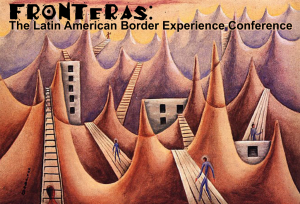
This conference includes a two-part panel centering on the concept of borders from the persepctive of both aesthetics and social analysis.
10:00am Panel 1: Border Aesthetics
Moderator: Leticia Robles-Moreno, New York University, Performance Studies
Utopia and sexual encounters in the Amazonian frontier: reading Roger Casement's Black Diaries
Javier Uriarte, Stony Brook University, Spanish
(Documentary) Photography and its Limits
Ángeles Donoso Macaya, CUNY Borough of Manhattan Community College, Spanish
Surviving Mexico: The Central American Migrants' Journey on Film
Nanci Buiza, Swarthmore College, Spanish
Before the border, the border: México and the Central American migrant in “La fila India” by Antonio Ortuño
Miguel Pillado, Lehigh University, Spanish
1:45pm Panel 2: Border Socialities
Moderator: Bárbara Zepeda, Lehigh University, History
Whiteness, Choledad, and New Elites in Neoliberal Peru
Ulla Berg, Rutgers University, Anthropology
Deaths, (In)Visibility, and Responsibility: The Politics of Mourning at the U.S.-Mexico Border
Alexandra Delano, The New School, Global Studies/Zolberg Institute on Migration and Mobility
Benjamin Nienass, California State University at San Marcos, Political Science
Crafting Difference and Constructing Boundaries: A Discussion of Latin American Migration to Chile
Megan Sheehan, Lehigh University, Anthropology
A Not so Fluid Border: Race and Class in Mexico
Hugo Ceron-Anaya, Lehigh University, Sociology
Un cuento chino
(Chinese Take-Out) (2011)
Director Sebastián Borenzstein
FREE Film Screening for LU Students/Faculty/Staff ONLY
In Buenos Aires, the bitter and methodic Roberto is a lonely man and the owner of a hardware store. One day, Roberto sees a Chinese named Jun being expelled from a taxi. Jun does not speak Spanish and shows a tattoo with an address on his arm.. Roberto goes with Jun to the police station, to the China's embassy and to a Chinese neighborhood to seek out his uncle but it is a fruitless search.
Roberto lodges Jun in his house and after a series of incidents, he finds a delivery boy to translate Jun and he learns the dramatic story of his life. (imdb.com)
Discussant: Instructor Eunice Cortez
Department of Modern Languages and Literatures
Who Is Dayani Cristal? (2013)
Director Marc Silver
FREE Film Screening for LU Students/Faculty/Staff ONLY
This award-winning documentary tells the story of a migrant who found himself in the deadly stretch of desert along the U.S. – Mexico border. The film follows a team of dedicated staff from the Pima County Medical Examiner’s Office, as they seek to identify this anonymous man. As the forensic investigation unfolds, Gabriel García Bernal retraces this man’s steps along the migrant trail in Central America. Who Is Dayani Cristal? highlights the often untold human stories behind the debates over immigration. (whoisdayanicristal.com)
Discussant: Megan Sheehan
Department of Sociology and Anthropology and a Latin American Predoctoral Fellow
As part of the Gender in a Global Context Discussion Series hosted by the Women's Center we present Child, Bride and Mother? This discussion focuses on the unspoken issues involving child marriages and pregnancies in South America. Is this a common tradition in other countries as well? Join us on September 24 in UC c207 from 12:10pm-1pm.
Juan de los muertos
(Juan of the Dead) (2011)
Director, Directed by Alejandro Brugués
FREE Film Screening for LU Students/Faculty/Staff ONLY
Juan is 40 years old, most of which he spent in Cuba doing absolutely nothing. Juan's only emotional tie is his daughter, Camila, a
beautiful young girl that doesn't want anything to do with her father because the only thing he's good at is getting into trouble. Suddenly some strange things start to happen, people are turning violent
attacking one to the other. Juan was first convinced it's just another stage of the Revolution. Little by little Juan and his friends start to realize that the attackers are not normal human beings and that
killing them is quite a difficult task. They're not vampires, they're not possesed, but they're definitely not dissidents; a simple bite turns the victim into other violent killing machine and the only way to beat them is destroying their brains. Juan decides that the best way of
facing the situation is making some money out of it.....
(C) Official Film Site
Discussant: Assistant Professor Miguel Pillado
Department of Modern Languages and Literatures
January 21 through May 24, 2015
Syncretisms in Contemporary Cuban Photography
The LAS Film Series - Free/Open to ONLY Lehigh University Faculty/Staff/Students
Discussant: Assistant Professor Barbara Zepeda, Department of History
The LAS Film Series - Free/Open to ONLY Lehigh University Faculty/Staff/Students
Discussant: Assistant Professor Javier Puente, Department of History
Speaker: Dr. Vanessa Perez-Rosario
The LAS Film Series - Free/Open to ONLY Lehigh University Faculty/Staff/Students
Discussant: Assistant Professor Miguel Pillado, Department of MLL
Speaker: Dr. J. Andrew Brown
Speakers: James B. Peterson, Director of Africana Studies and Wilfredo Gomez
Speaker: Gayatri Chakravorty Spivak, Professor, Columbia University
A Global Tour to the Countries, Factories, and the People That Make Our Clothes
Organized by South Mountain College with sponsorship from: Asian Studies, Environmental Initiative, Ethics Series, Global Studies, Humanities Center, Latin American Studies program, Library Speaker Series, Office of Sustainability, Religion Studies, Sociology and Anthropology, Sustainable Development, and Women, Gender, and Sexuality Studies.
Photography Exhibit - 8:00 AM to 6:00 PM • STEPS Concourse
Lecture - 6:30 PM • Packard Lab 101
Jose Galvez, the leading documentary photographer of Latino life in America, will be showcasing an exhibit documenting Latino and Hispanic life and culture since the 1960s, specifically immigration. He will discuss as well as showcase the journey that millions of undocumented people have undertaken.

